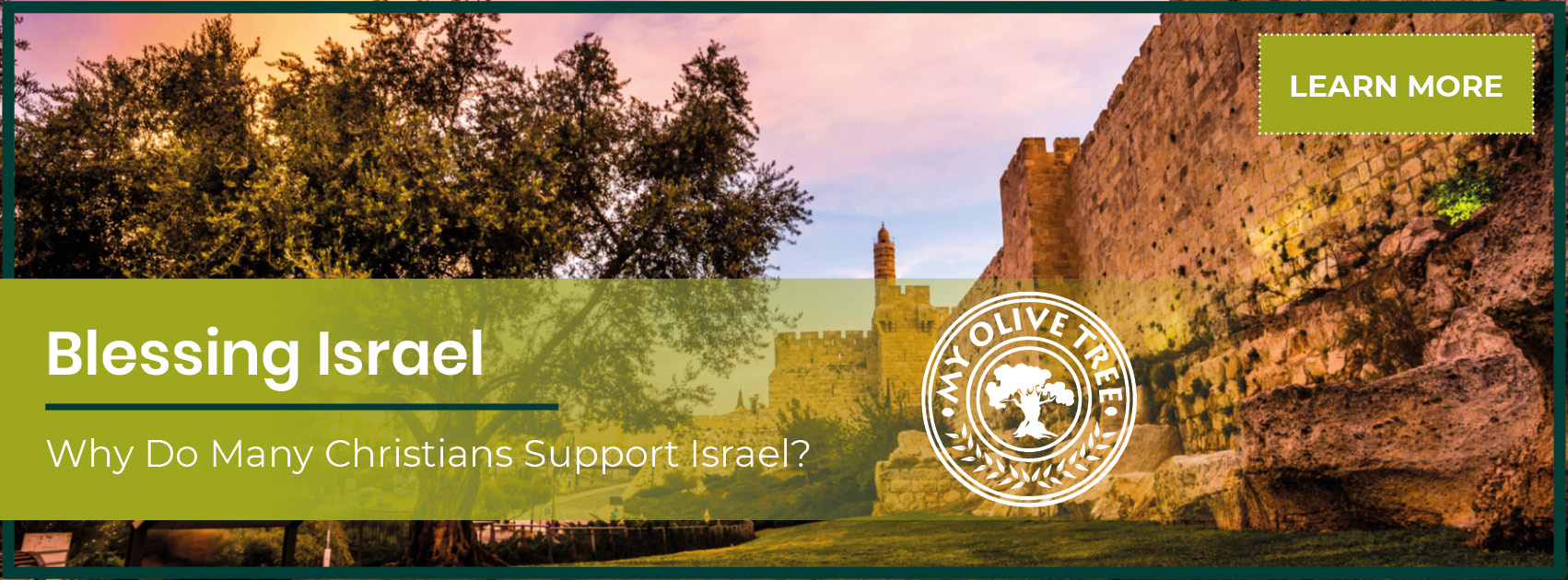The Jordan River
The Jordan, or the Yarden, as it is known in Israel, is one of the most important rivers in the Word, and is frequently mentioned by name.
Approximately 156 miles in length, the Jordan River is located in the land promised by God and separates Israel from the Kingdom of Jordan and the West Bank—both of which have names connected to the river.
Yet, further still, the Jordan River feeds the Sea of Galilee, before flowing through it and on into the Dead Sea—a body of salt water with virtually no life; the lowest point in the world.
The contrast between the fresh water of the Galilee and the salt of the Dead Sea is unique when we consider that the Jordan River not only connects both bodies of water, but feeds into them.
This is the river that God’s people crossed over to enter their Promised Land, the river that Jesus Himself was immersed in… this river connects the dead to life both physically, and spiritually.
It is a place chosen by God.
The Jordan in the Word:
In the book of Genesis, we read that Jacob wrestles with God by the ford of Jabbok—a place he renamed Peniel or Penuel—which flows into the Jordan River, making Jacob one of the first people recorded in the Word—besides possibly Lot—to have been in the land of Jordan and likely known its waters.
This early connection to the elders of the Word and people of Israel is special, yet, the river would continue to play an important role in many biblical accounts… the next of which involved coming to the Promised Land…
“But I must die in this land, I must not cross over the Jordan; but you shall cross over and possess that good land.”—Deuteronomy 4:22
Moses and Aaron, along with a generation of those who fell into fear, doubt and unbelief may never have gotten to cross over the Jordan, yet, the generation to follow, led by Joshua, would. The Ark of the Covenant went before the people, leaving dry land for the people, and, on that temporarily dry land twelve stones were placed. One for each of the tribes of Israel…
“…the children of Israel… took up twelve stones from the midst of the Jordan, as the Lord had spoken to Joshua, according to the number of the tribes of the children of Israel, and carried them over with them to the place where they lodged, and laid them down there. Then Joshua set up twelve stones in the midst of the Jordan, in the place where the feet of the priests who bore the ark of the covenant stood; and they are there to this day.”—Joshua 4:8-9
These twelve stones, and this specific location of crossing would play an important role many generations later when Jesus went to be immersed in the river, yet, even before that time the river continued to play its part in the history of the Word.
The half-tribe of Manasseh, the tribe of Reuben, and the tribe of Gad—while sending their armed men across the Jordan to help take the land—remained within the edges of the Promised Land; the east side of the Jordan River. Thus, for them to go to the Tabernacle for the appointed times and events, they would have had to cross the Jordan, but further still, many enemies would also have to cross the Jordan to reach God’s children…
“Moreover the people of Ammon crossed over the Jordan to fight against Judah also, against Benjamin, and against the house of Ephraim, so that Israel was severely distressed.”—Judges 10:9
The river was a source of life for Israel, but a barrier to be crossed for many of their enemies, and of course, a sign of changing seasons. Such as, when the generation of Moses was not allowed to cross over, but the generation of Joshua was… one season closing and a new one beginning.
This is in part why Jesus was immersed in the Jordan River. It was a place where death and life were exchanged, where purpose was set in motion, and seasons changed.
“To everything there is a season, a time for every purpose under heaven…”—Ecclesiastes 3:1
Jesus went to the Jordan to be immersed by John the Baptist (known to his contemporaries as Yochanan the Immerser). He traveled through a dangerous area—virtually the Valley of the Shadow of Death—and went to the very place where the Israelites crossed over into their promise… their new season, purpose, and life.
This place was not chosen by chance. Jesus did not go there simply because John was there—though there are many reasons why He chose to be immersed by John specifically. He went because it was a place of transition. And it was time. He had to be immersed into His calling. He was 30 years of age; He was ready to take up His mantle as Rabbi; and in God’s law, He had to be immersed. Further still, because of who Jesus was and is, He had to be immersed by the High Priest.
Now, John was not the High Priest in the eyes of those in power—for the position had been sold. Yet, John was legally—in God’s eyes and ordinances—the High Priest. He was of the lineage of the priesthood.
Jesus knew this—as did those who went to John to be immersed—not only because He was the cousin of John, but because God guided Him. God led Him to John and despite John’s disbelief or pride, He did as God willed and was immersed at that place, at that time, and by John!
“Then Yeshua came from the Galil to the Yarden to be immersed by Yochanan. But Yochanan tried to stop him. ‘You are coming to me? I ought to be immersed by you!’ However, Yeshua answered him, ‘Let it be this way now, because we should do everything righteousness requires.’ Then Yochanan let him.
“As soon as Yeshua had been immersed, he came up out of the water. At that moment heaven was opened, he saw the Spirit of God coming down upon him like a dove, and a voice from heaven said, ‘This is my Son, whom I love; I am well pleased with him.’”—Matthew 3:13-17 (CJB)
Jesus understood the importance of doing all God required in His Word. He had studied the Word with due diligence to become a Rabbi AND He was, and is, the Son of God. He would ONLY do what God did and required of Him.
Conclusion:
The Jordan River is visited by many every year. They go to be baptized, immersed, and see the place where so many turning points occurred.
Few travel to where Jesus did, instead staying in the calm, clean, and facilitated areas… yet, no matter where in the Jordan one goes, its importance does not diminish.
It is a place of turning; where death becomes life, old becomes new, and seasons transition.
God sent the Israelites to cross over the waters of the Jordan.
God sent Jesus to be immersed into His calling and season, to bring life to those of us who were dead in spirit.
Over and over, God used the Jordan to prepare for a transfer… a transition of season and purpose. Using it as place to restore life, and end past seasons.
At My Olive Tree we are working to restore the land of Israel. While most of the work we do through the support of people like YOU is in planting trees for the purpose of bringing jobs and economic growth, there are other reasons. There are biblical reasons of God’s promises to restore the land. There are ecological reasons, such as, bringing stability to the soil, purifying the atmosphere, promoting important species such as bees, etc.
Each of these purposes is vital, and they all work toward a common goal… preparing the land and people for the return of Messiah—the return of Jesus!
And while we wait, they all work toward maintaining important biblical sites; bringing hope to God’s people.
Let us join together and bring the land to life!









